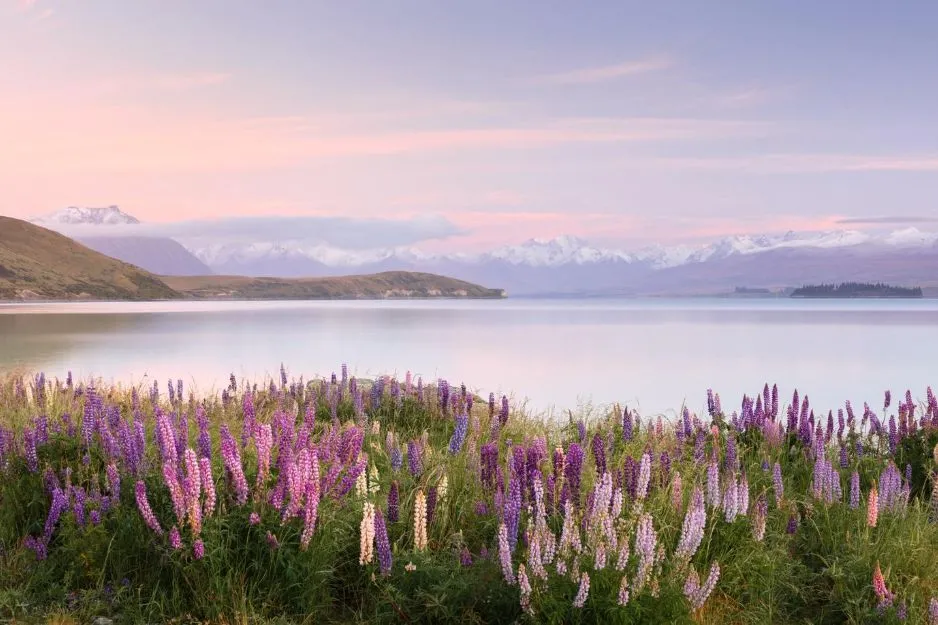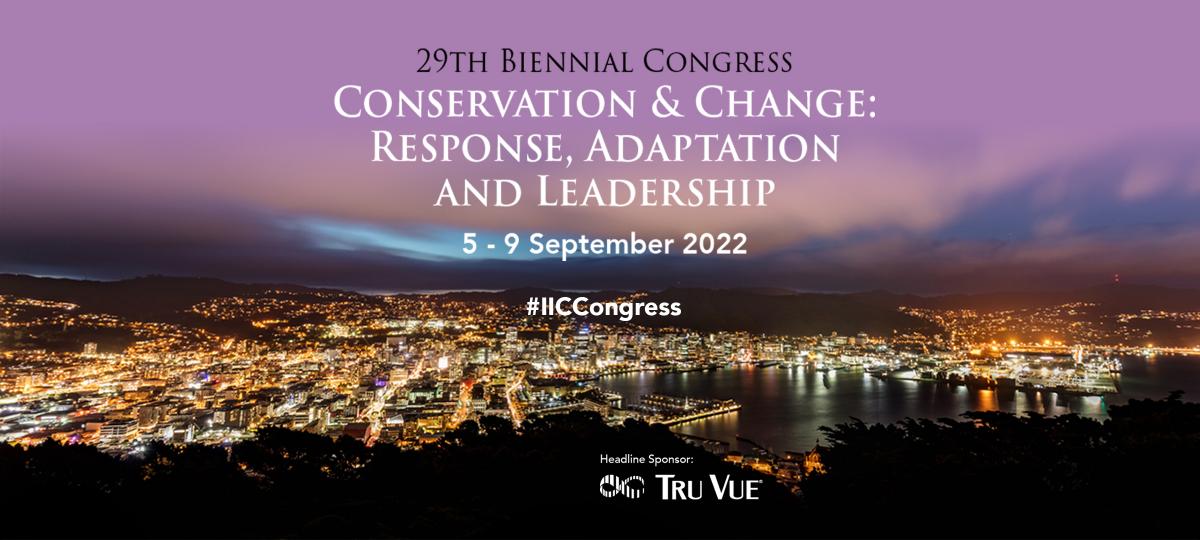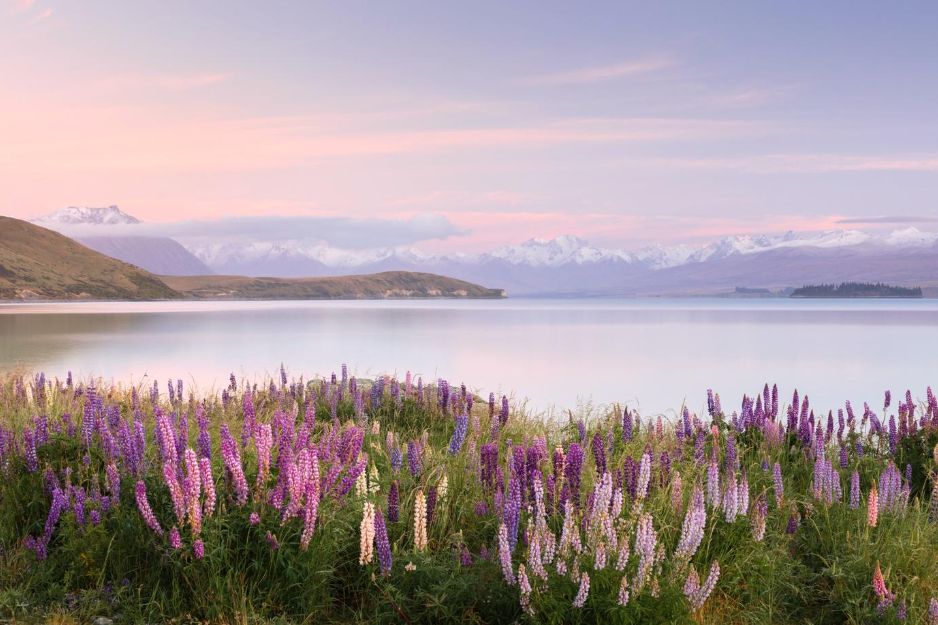Closing Remarks and Farewell
Submitted by sharragrow on 24 Sep 2022

By Alexandra Taylor
The IIC Wellington Congress: an overview
September played host to the IIC’s 29th biennial Congress in Wellington, Aotearoa, New Zealand. Whisked into being by the IIC Council and New Zealand Conservators of Cultural Material: Pū Maanaki Kahurangi, the programme topics selected had to meet the theme of this much anticipated event…

As the title suggests, the depth and breadth of subject matter in IIC’s Wellington Congress knew no bounds, and our international and multidisciplinary assembly of speakers did not disappoint. We learned about the challenging conservation approaches in response to historical, social and environmental change; the developing role of conservators in communities; and the position one can take in repatriation of cultural materials and challenging colonial practice. We heard from experts about visionary scientific research that promotes or informs change; and of mitigating or adapting to the effects of a fluctuating climate.
The Student Posters alone introduced us to the outstanding scope encompassed in this discipline. As a peer-reviewed platform for research and work on conservation projects, all activity is undertaken by students and recent graduates. During the Congress, we were privileged enough to hear short previews of proposals, inspiring discussion that took us beyond our usual spheres of practice.
Sparks flew in the Regional Hubs where teams of technicians, working behind the scenes to host this hybridised event, offered ground-breaking translations of the sessions in 20+ languages – a first attempt at creating a forum that is multilingual, accessible and interactive for everybody. From Europe, through India and Southeast Asia, to Africa and the Americas - much praise alluding to the benefit of personalised time-zones and innovative discussion surfaced in the Congress Chat.
The three tours guiding in-person participants through Wellington’s finest conservation spaces, which were also virtually accessible, were worth the wait. And let’s not forget the Keck Award nominees: another rich display of diversity, inspiration and empowerment reflecting changing trends in conservation. The Keck Award is given every two years to the individual or group who has contributed the most towards public understanding of the conservation profession. Participants waited with baited breath for the closing remarks and farewell, wherein Executive Director Sarah Staniforth was set to announce this year’s winner. However, sad tidings from Balmoral Castle in Scotland intercepted these plans.

The passing of Queen Elizabeth II ushered the final day of the Congress towards an early and quiet close. New Zealand, being one of 14 countries within the British Commonwealth, went into a national state of mourning; all weekend activities were postponed and the world, in effect, went still.
The Queen is Britain’s longest reigning monarch. She has lived through decades of unthinkable change and has been a constant point in the lives of so many. Certainly, few people today remember a time when the Queen was not regent. At only 25 years old she shouldered the mighty burden, and accepted responsibility for the livelihood of her scattered citizens. Nobility prevailing, she remained dutiful and respectful of that power throughout her seventy years on the throne, seeing in England’s new Prime Minister as a final act. In respect for Her Majesty, IIC decided to withhold celebrations, recognising the loss of an extraordinary monarch and the closing of her great chapter.
Date-change for Keck Award, Acknowledgements
Although the Keck Award and Poster Prize announcements could not take place, Staniforth noted that IIC have rescheduled for a special online celebration event on the 27th of September 2022, midday (BST). Invitations to the event shall be emailed to all congress participants and nominees.
Finally, the IIC Wellington Congress would not have been possible without the outstanding work of Sarah Stannage, Louise Rowe, Sharra Grow, Kate Smith, Ellie Sweetnam and Marina Herriges. The Digital Engagement Volunteers would like to thank you six personally for all the assistance, encouragement and clarity you provided during this jam-packed week. We’d also like to recognise the amazing work undertaken behind the scenes by the Cadmore Team and Technical, Student Poster and Editorial Committees. This was an enormous task and we’re extremely grateful for the time you put in on a voluntary basis. The 15 Chairs of the Virtual Hub sessions: you know who you are – profound thanks to you all! Lastly, we’d like to recognise the invaluable Headline Sponsorship of TruVue and local organising partner NZCCM, as well as the Alexander Turnbull Library, ERCO and Conservation Supplies.
In Summary
This year’s Congress was inspirational. It covered relevant, key topics in conservation discourse. The hybridised nature of its five-day programme made the Congress distinctive and dynamic – setting the bar for inclusive exchange. Yet, no one could have predicted the week to unfold the way that it did; and although the ending was raw and heartfelt, it did more to capture the subtle nuances that exist in simply being human. Warmth, kindness, compassion, respect…
… in leadership, adaption, response, change. Culture lies at the heart of everything – our very natures are entwined in it. In some ways history is a record of time passing, but it also marks shifting thought, expression and action in the present. Some speakers highlighted the complicated juxtaposition of allocating agency to static things, and in doing so posed the question: are objects static in nature at all? In saying that, does anything ever really come to pass?
Just as one chapter closes, another opens. Change is inevitable, and that’s a beautiful, marvellous thing.
#iiccongress #iic #iiconservation #internationalinstituteforconservation #closingremarks #farewell
Image Captions
Figure 1: Wellington Congress banner
Figure 2: Lake Tekapo, Christchurch, Canterbury